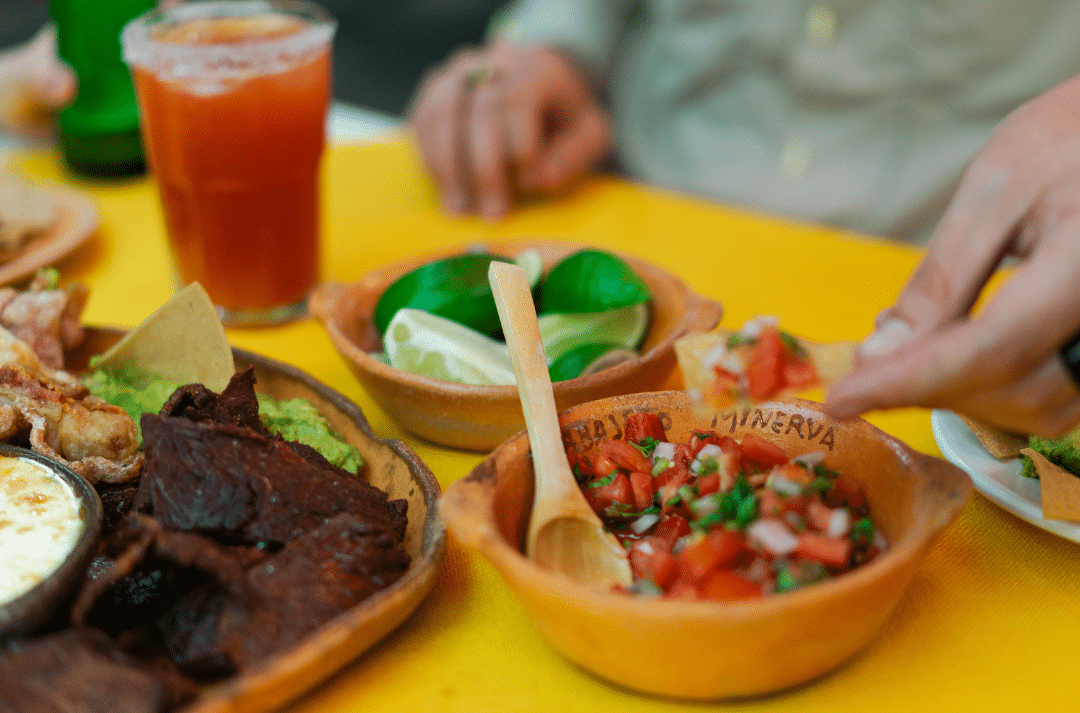Are you eating enough fruits and vegetables? Is your pantry stocked with whole grains, seeds, nuts, and legumes? According to John Duda, MD, that’s the basis of a healthy diet for just about everyone – including people living with Parkinson’s. As a movement disorder specialist, Dr. Duda talks to his Parkinson’s patients about ways to get more of the right foods in their diets. We talked with him to get his dietary advice.
Q. Tell us a little about your interest in Parkinson’s nutrition.
A. I’ve been a practicing movement disorder specialist for over 15 years, and I was getting tired of waiting for the big pharmaceutical breakthrough to slow the progression of PD. When exercise became recognized as a potential way to affect progression, I started talking to patients about it. I also started investigating whether nutrition could play a role in slowing disease progression as well. Most current theories regarding the cause of PD include chronic inflammation and oxidative injury. Therefore, it makes sense to me that a plant-based diet, loaded with anti-inflammatory and anti-oxidative compounds could slow disease progression.
Q. As a doctor, how do you incorporate nutrition into your practice?
A. I believe food is medicine, but as a medical community, we don’t use it appropriately. We often don’t give patients the benefit of the doubt, believing that people won’t change their diet so it’s not worth taking the time to talk to them about nutrition. Fortunately, I’m in a position that gives me adequate time to talk to my patients about lifestyle changes, as well as medications, that can help them. I find that people are very responsive, and it’s rewarding to see the improvements in well-being that can happen when patients take charge of their fitness and nutrition.
Q. You’re a proponent of plant-based, whole food diets for people with Parkinson’s. Can you tell us more about this diet and why you think it’s beneficial for PD?
A. It’s a diet that’s based on whole foods instead of processed foods – starting with whole fruits and vegetables, whole grains, legumes, nuts and seeds. As the name suggests, it’s primarily based on plants, but if people want to throw in eggs or fish occasionally, that’s probably ok too. This type of diet is a whole package of nutrients, so there’s no need for supplements.
The evidence is pretty overwhelming that a plant-based, whole food diet is the foundation of healthy nutrition. I’m not religious about it – you should eat what you have to eat to be happy, because you don’t want to live a long life if you are miserable! But the rest of the time, you should eat what you have to eat to be healthy. Be conscious of the health benefits of a plant-based whole food diet. Though there’s some wiggle room around the edges, the evidence is pretty compelling that we don’t need dairy, meat, or poultry to be healthy.
In addition, I don’t think it can be overstated how empowering it can be for someone with PD, or any chronic disease, to take charge of their wellness and fight back against the disease in every way possible. It changes the perspective from one who is victimized or suffering from the disease to one who is fighting back and living with the disease.
Q. Any tips for helping people eat a whole food, plant-based diet?
A. If you’ve been eating a certain way for a long time, it might be really hard to make all the changes we’re talking about for a whole food, plant-based diet at once. I advise people to do their best to minimize processed foods, dairy and meat, and to make healthy replacements for some meals during the week. There are also numerous online and published guidelines for helping people get started. Two good examples are the Plant-based Primer from Forksoverknives.com or the Plant-Based Diet from Kaiser-Permanente.
At the VA, we did a small study looking at whether a whole food, plant-based diet could help with PD symptoms. To help our participants eat this type of diet, we taught them what foods to eat and why, and how to prepare them. We introduced foods that people may not be used to, like hummus and quinoa. Knowing how to make homemade hummus was a big hit!
We also found that camaraderie and social networking – a team effort – was important. Participants talked about what they tried and what they enjoyed. We also included spouses, which really helped people succeed on this diet.
While the study was too small to draw many conclusions, we did see changes in what the subjects were eating and improvement in constipation, which was the primary outcome.
Q. If you could give one piece of nutrition advice to someone with Parkinson’s, what would it be?
A. Educate yourself! There are great online resources like www.forksoverknives.com or www.nutritionfacts.org where you can learn a lot more about nutrition than the vast majority of physicians know. One small change, like adding 1-2 tablespoons of ground flax seed to your diet, can be very beneficial, especially for symptoms like constipation.
Q. Last question – what’s for dinner tonight?
A. I cook big batches of food so that I have leftovers. I have some leftover spicy pasta sauce with collard greens, chickpeas, garlic, mushrooms and onion that I’m going to put over a whole grain like barley or quinoa. YUM!!
John Duda, MD, is the director of the Parkinson’s Disease Research, Education and Clinical Center (PADRECC) of the Philadelphia VA Medical Center and associate professor of neurology at the Perelman School of Medicine at the University of Pennsylvania.



